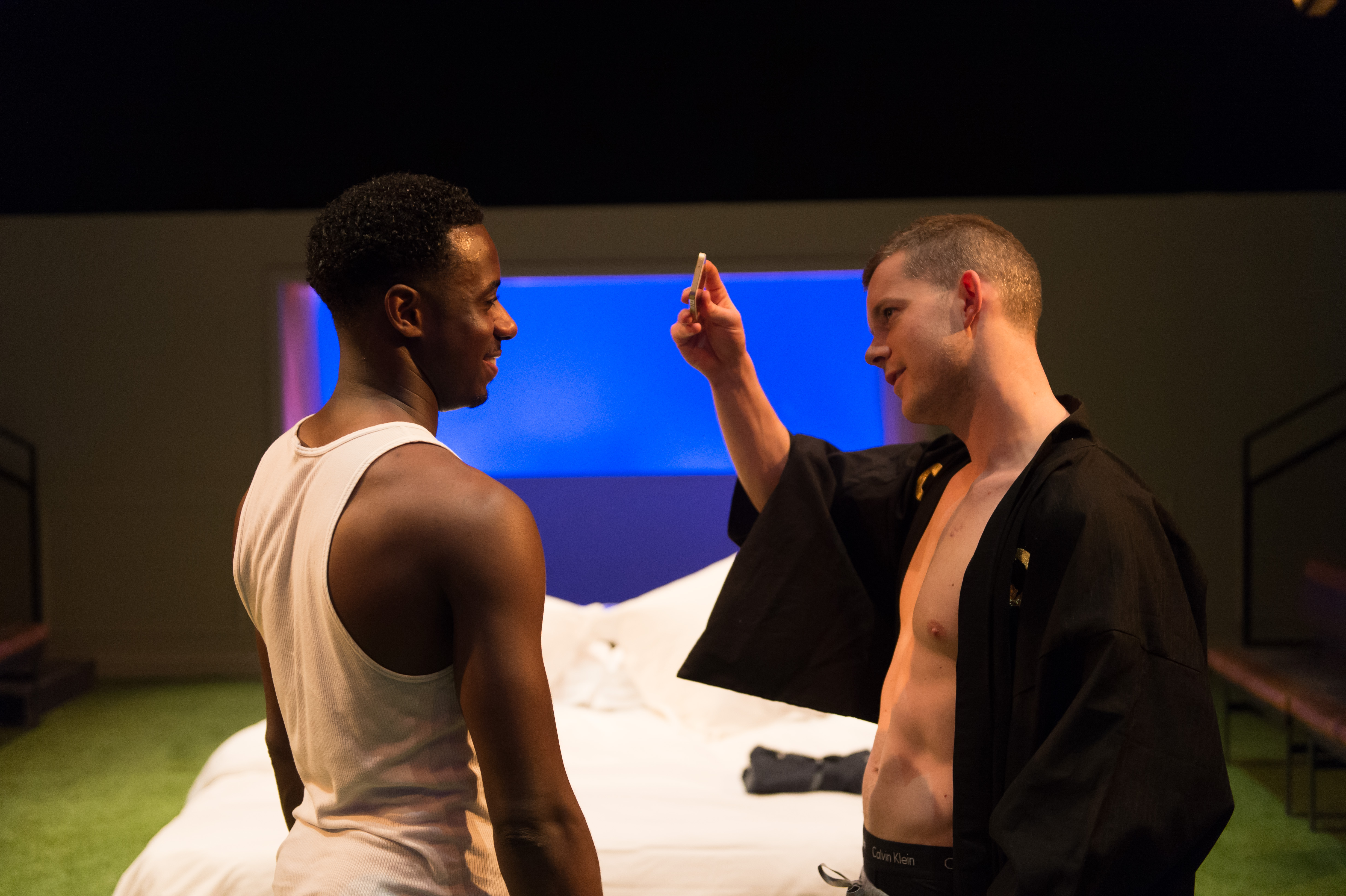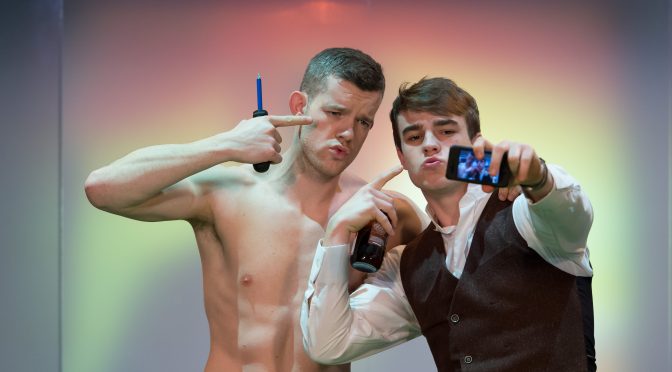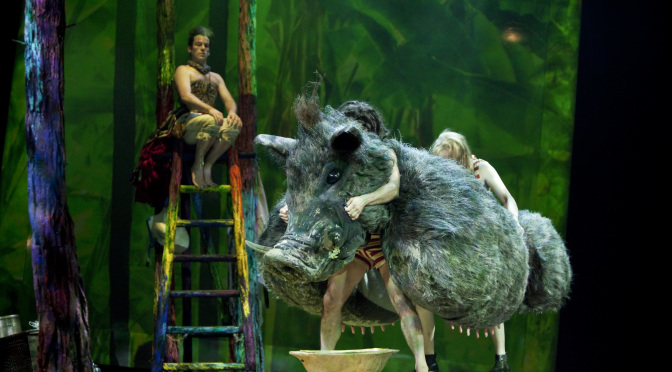This month former Premier League footballer Thomas Hitzlsperger revealed that he is gay. It adds some topicality to John Donnelly’s new play The Pass, currently showing at the Royal Court, which examines a footballer’s sexuality in three scenes during his career. But if you caught the news, you probably weren’t that bothered. And this is where Donnelly really scores: The Pass only uses its characters’ sex lives to explore something we find much more interesting nowadays – fame – and it does this in exemplary fashion.
At first it’s all juvenile fun: two teenagers in a hotel room, reeking of hormones. The banter is disgraceful, no surprise, but an uneasy twist comes with the suggestion that Jason is toying with Ade’s affections: literally using sex as a weapon to put his fellow fledgling player off his game. Things take a darker turn as Jason’s career takes off. Exploiting a cliché, a one-night stand with a table top dancer, Donnelly adds enough twists and turns for a thriller. Already corrupted by celebrity status Jason has become a monster, albeit one with an indefinable charm, and like all scary villains he has plenty of plans.

There are minor issues with the text that even John Tiffany’s skilled direction can’t quite hide but a talented cast ensure they don’t become irritants. Gary Carr deals remarkably with the years separating his appearances, transforming from a boy into a confident man. Lisa McGrillis is superb in her scene, keeping you on the edge of your seat. All eyes are on Russell Tovey in the lead role. Few do matey straight roles better than Tovey: his comic skills are perfect, but the play’s time scale and his character’s development give him the chance to show great depth. Maybe his performance will be enough to get the show a transfer (apologies).
While Tovey never falters, The Pass doesn’t keep up the wonderfully high standard of its first two scenes. The introduction of a fourth role, a young boy who works in a third and final hotel, marks an able debut from Nico Mirallegro, but the character, who shows the same faux naivety Donnelly uses so well elsewhere, fails to convince. Jason’s connection with reality becomes a little too strained now he is a megastar. But admittedly the tension continues and The Pass still thrills. A reunion between Jason and Ade brings us more power games and moral questions – the price of fame and failure – formulated in an insightful fashion.
Until 1 March 2014
Photos by Manuel Harlan
Written 19 January 2014 for The London Magazine


